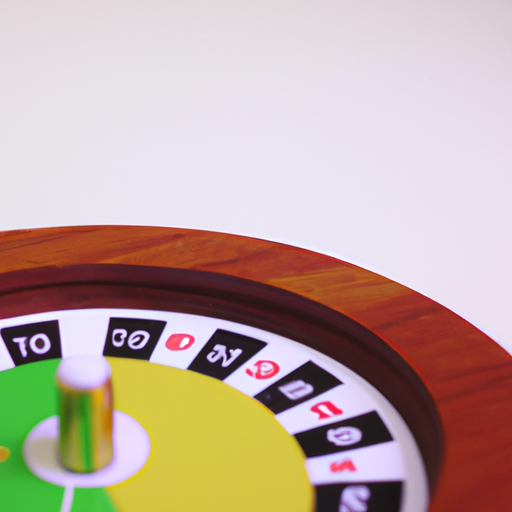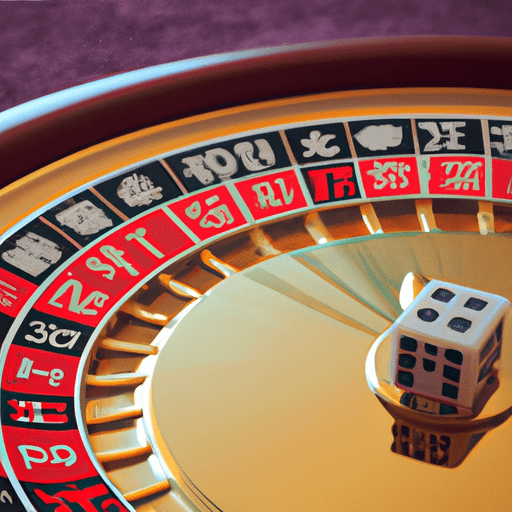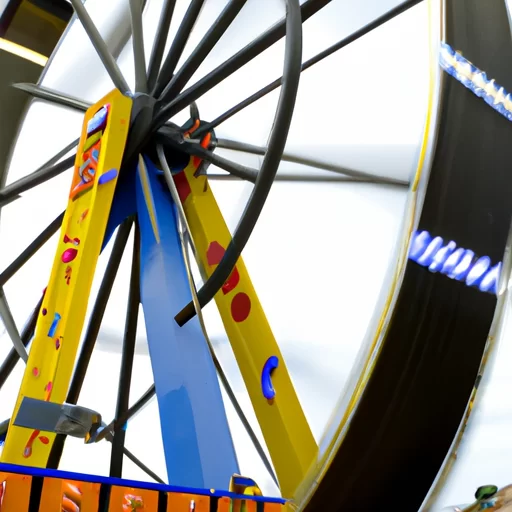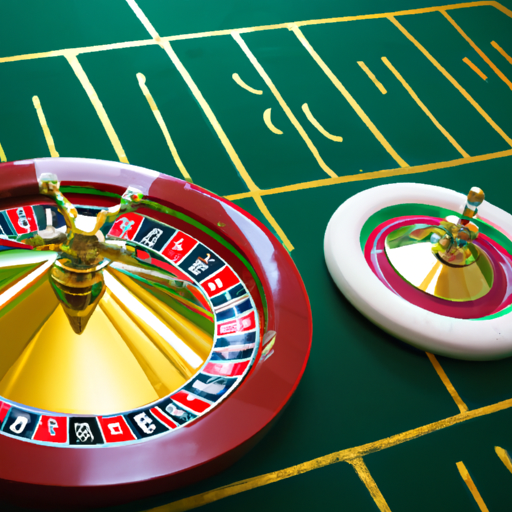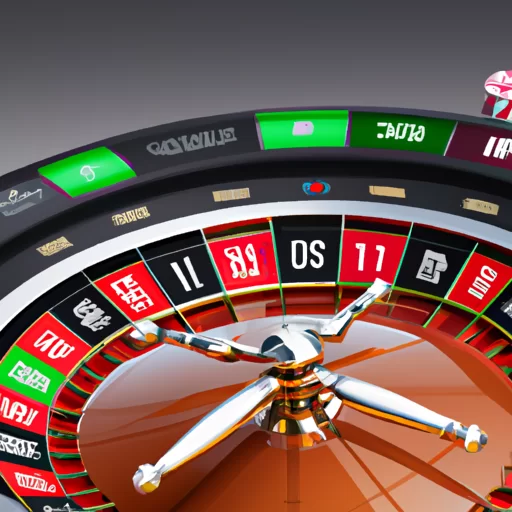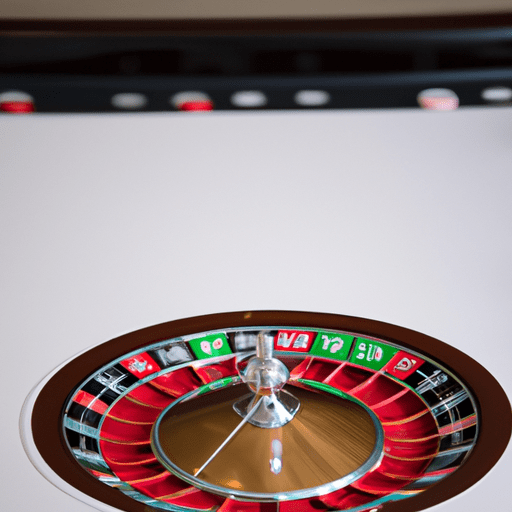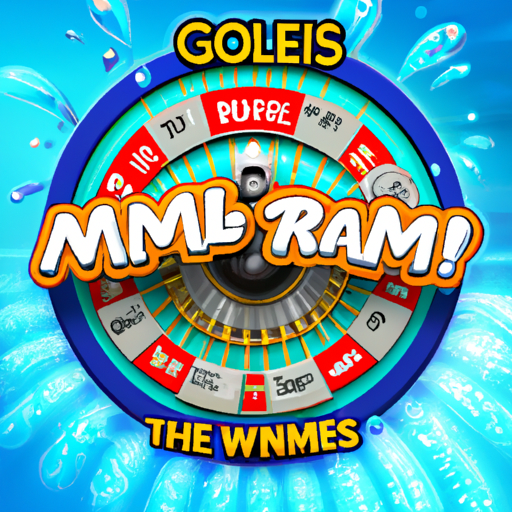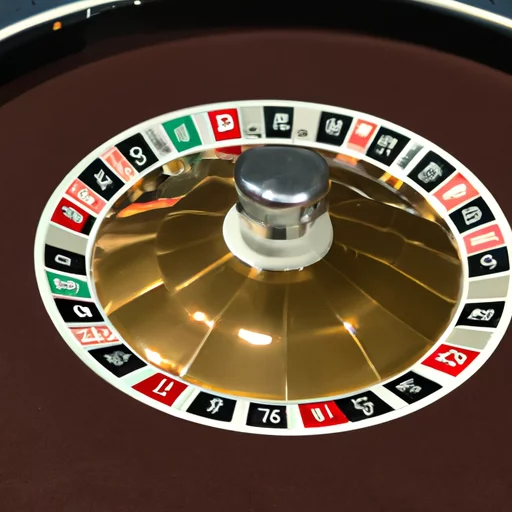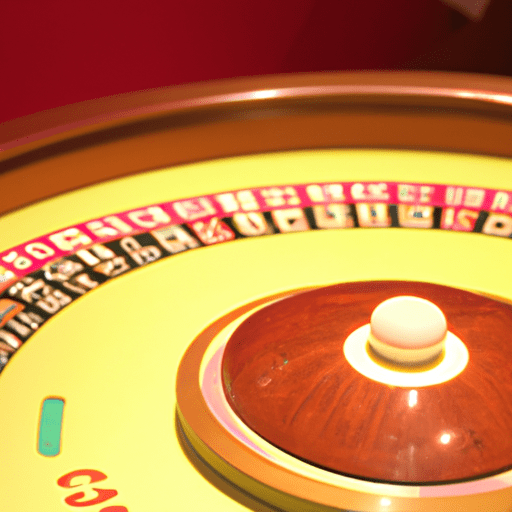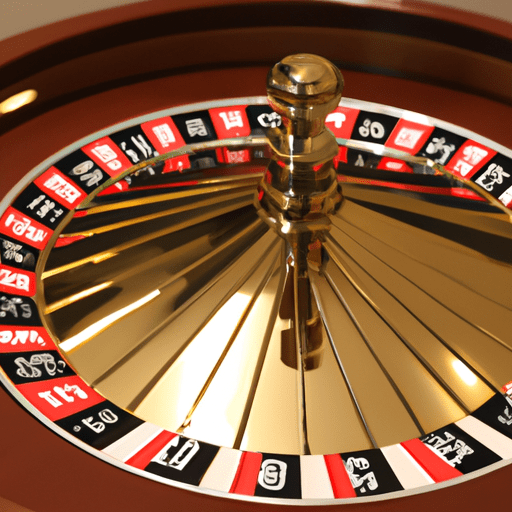 The Online Casino Pay By Phone Bill & Casino Phone Number with Pay By SMS Casino, Vip Casino Bonus reading from CasinoPhoneBill.com
The Online Casino Pay By Phone Bill & Casino Phone Number with Pay By SMS Casino, Vip Casino Bonus reading from CasinoPhoneBill.com
Roulette Wheel
In the realm of gambling, the roulette wheel stands as an iconic symbol of chance, excitement, and potential fortune. As you spin the wheel, anticipation fills the air, for each spin carries the promise of a new beginning. This article, sourced from the esteemed GlobaliGaming.com, offers informative insights into the intricacies of the roulette wheel, delving into its history, mechanics, and strategies. Whether you are a seasoned gambler or newly intrigued by the world of Roulette, this article is a valuable resource to expand your knowledge and enhance your understanding of this captivating game.
History of the Roulette Wheel
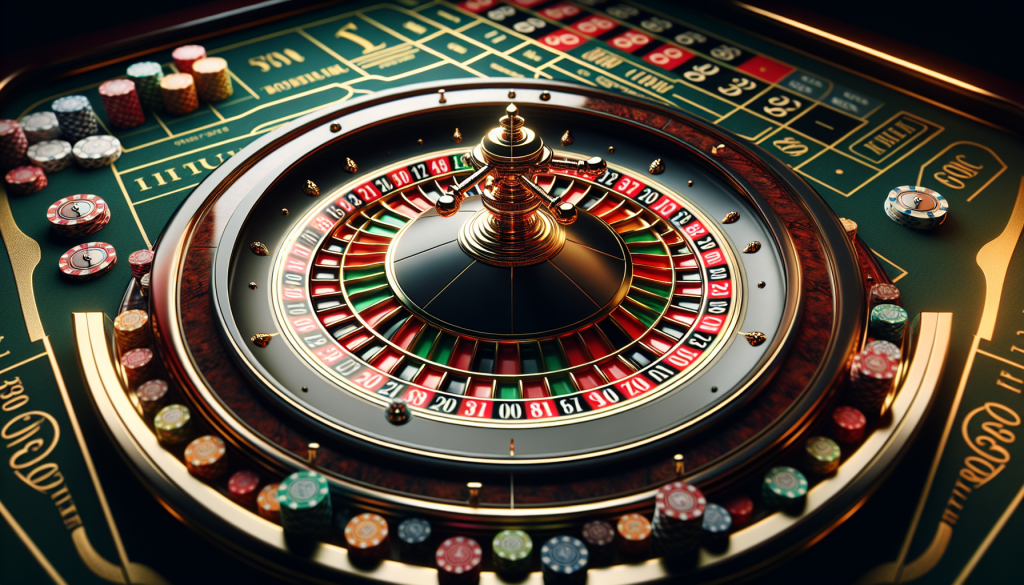
Invention of the Roulette Wheel
The history of the roulette wheel dates back to the 17th century, when the game of roulette was first introduced in Europe. The exact origins of the game are still debated, but it is widely believed that the modern roulette wheel was invented by Blaise Pascal, a French mathematician, physicist, and inventor. Pascal was attempting to create a perpetual motion machine, but instead, he inadvertently created the roulette wheel.
Introduction of the Single Zero Roulette Wheel
In the early years of roulette, the wheel featured both a single zero and a double zero pocket. However, in 1843, Francois and Louis Blanc, two French brothers and casino operators, introduced a new version of the roulette wheel with only a single zero pocket. This change reduced the house edge and increased the chances of winning for the players. The single zero roulette wheel quickly gained popularity and became the standard in European casinos.
Evolution of the Roulette Wheel Designs
Over the years, the design of the roulette wheel has evolved, but the fundamental principles have remained the same. In the late 19th century, casinos in Monte Carlo started using a distinctive wheel design known as the “Monte Carlo” wheel. This wheel featured larger pockets, making it easier for the dealer to handle the bets and the spinning of the wheel. In the 20th century, the advent of technology led to the development of automated roulette wheels, which are now commonly seen in modern casinos.
Anatomy of the Roulette Wheel
Number Pockets
The roulette wheel consists of numbered pockets arranged in a specific order. The pockets are colored alternately in red and black, with the zero pocket(s) marked in green. In the European and French roulette wheels, the pockets are numbered from 1 to 36, while the American roulette wheel has an additional double zero pocket, bringing the total number of pockets to 37 or 38.
Colors and Patterns
The alternating colors of red and black on the roulette wheel are not random. They follow a specific pattern known as the “French Wheel Sequence.” The sequence involves the arrangement of the numbers on the wheel to ensure an even distribution of odd and even, high and low, and red and black numbers. This pattern is essential for maintaining fairness and impartiality in the game.
Ball Track and Rotor
The ball track is a circular groove on the wheel where the roulette ball is spun. It is designed to be smooth and level to allow the ball to roll freely. The rotor, also known as the wheelhead, is the spinning part of the wheel where the ball enters and eventually comes to a stop. It is balanced and precisely positioned to ensure a randomized outcome.
Wheel Head and Cone
The wheel head is the upper part of the roulette wheel that contains the numbered pockets. It is connected to the wheel cone, which is the lower part of the wheel that houses the ball track and rotor. The wheel head and cone are carefully constructed to maintain balance and integrity in the spinning of the wheel.
Wheel Diameter and Weight
The diameter and weight of the roulette wheel are crucial factors in determining the randomness and fairness of the game. The wheel's diameter affects the speed and trajectory of the ball, while the weight ensures that the wheel spins smoothly and consistently. Regulations and standards dictate specific requirements for the wheel's diameter and weight to ensure a fair gaming experience.
Different Types of Roulette Wheels
American Roulette Wheel
The American roulette wheel is the most common type of wheel found in casinos in the United States. It has 38 numbered pockets, including a single zero and a double zero pocket. The additional double zero pocket increases the house edge, making it less favorable for players compared to the European and French roulette wheels.
European Roulette Wheel
The European roulette wheel is the standard wheel used in most European casinos. It has 37 numbered pockets, including a single zero pocket. The absence of the double zero pocket reduces the house edge, making European roulette more favorable for players compared to the American version.
French Roulette Wheel
The French roulette wheel is similar to the European wheel, with 37 numbered pockets and a single zero. However, there are additional rules and bets specific to French roulette, such as the “La Partage” and “En Prison” rules, which further reduce the house edge. French roulette is often regarded as the most player-friendly version of the game.
The Mathematics of the Roulette Wheel
The House Edge
The house edge in roulette is a mathematical advantage that the casino has over the players. It is determined by the presence of the zero or double zero pocket on the wheel. In American roulette, the house edge is approximately 5.26%, while in European and French roulette, it is reduced to around 2.7%. The house edge ensures that the casino will make a profit in the long run, but it is important to note that individual players can still win in the short term.
Roulette Odds and Payouts
Understanding the odds and payouts in roulette is essential for making informed bets. The odds of winning a particular bet depend on the probability of that outcome occurring, which is influenced by the number of pockets and the type of bet. The payouts for different bets are based on the odds, with more challenging bets offering higher payouts. It is crucial to familiarize yourself with the various odds and payouts before playing roulette to maximize your chances of winning.
The Role of Randomness in Roulette
Roulette is a game of chance, and its outcomes are determined by random events. The spinning of the wheel and the landing of the ball are entirely unpredictable, ensuring fairness and impartiality in the game. Random number generators (RNGs) are used in online roulette to replicate the randomness of a physical wheel. It is important to remember that each spin of the wheel is independent, and previous results have no bearing on future outcomes.
Understanding the Roulette Wheel Layout
Inside Bets and Outside Bets
When placing bets in roulette, players have the option to bet on the inside or outside of the betting layout. Inside bets involve betting on specific numbers or groups of numbers, offering higher payouts but lower odds of winning. Outside bets, on the other hand, involve betting on broader categories such as red or black, even or odd, or high or low numbers. Outside bets have lower payouts but higher odds of winning.
The Number Sequence
The numbers on the roulette wheel are arranged in a specific sequence. In European and French roulette, the sequence starts with 0 and continues in clockwise order up to 36. The numbers are positioned in a way to ensure an even distribution of odd and even, high and low, and red and black numbers to maintain fairness and balance in the game.
The Positioning of Numbers and Bets
The positioning of the numbers and bets on the roulette wheel and layout follows a specific logic. For example, the number 1 is placed opposite the number 2, number 3 opposite number 4, and so on. The arrangement allows for an even distribution of the numbers and provides symmetry to the overall design of the wheel.
Roulette Wheel Strategies
Martingale System
The Martingale system is one of the most popular betting strategies used in roulette. It involves doubling your bet after a loss, with the aim of recovering the previous losses and making a profit. However, the Martingale system does not guarantee long-term success, as it relies on the assumption that you will eventually win. It is important to consider the table limits and the size of your bankroll when employing the Martingale system.
Fibonacci System
The Fibonacci system is based on the Fibonacci sequence, a mathematical sequence where each number is the sum of the two preceding numbers. In roulette, the Fibonacci system involves betting the sum of the previous two bets. This strategy aims to minimize losses and take advantage of winning streaks. However, it is important to note that the Fibonacci system does not alter the odds of winning, and it is still subject to the house edge.
Labouchere System
The Labouchere system, also known as the cancellation system, is a more complex betting strategy in roulette. It involves a series of numbers that represent the bets, and each bet is the sum of the first and last numbers in the sequence. If the bet is won, the two outer numbers are crossed off the sequence. If the bet is lost, the sum of the bet is added to the end of the sequence. The goal is to eventually cross off all the numbers in the sequence and make a profit.
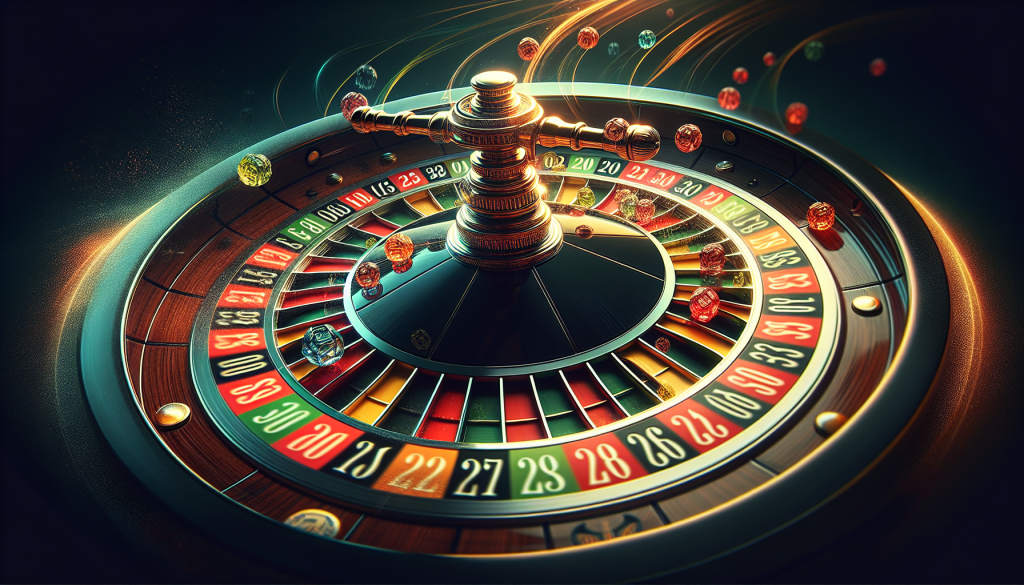
D'Alembert System
The D'Alembert system is a negative progression betting strategy in roulette. It involves increasing your bet by a predetermined amount after a loss and decreasing it after a win. The D'Alembert system aims to balance out losses and wins and slowly recover losses. However, it is important to remember that no betting system can guarantee consistent wins in roulette.
James Bond Strategy
The James Bond strategy is a unique betting strategy attributed to the fictional character James Bond. It involves placing multiple bets to cover a wide range of numbers on the roulette wheel. With this strategy, you bet a larger amount on high numbers (19-36), a smaller amount on numbers 13-18, and a smaller amount on zero, to cover as many possible outcomes as possible. The James Bond strategy has gained popularity for its thrill and potential for big wins, but like all betting strategies, it has its risks.
Roulette Wheel Tips and Etiquette
Managing Your Bankroll
One of the most important aspects of playing roulette is managing your bankroll effectively. Set a budget for your gambling session and stick to it. Avoid chasing losses and never bet more than you can afford to lose. It is also advisable to set win goals and walk away from the table once you have reached them. Proper bankroll management will help ensure a more enjoyable and responsible gambling experience.
Observing the Game
Before diving into the action, it is essential to observe the game and the betting patterns of other players. Take note of which numbers and bets are winning more frequently and analyze any trends. While roulette is a game of chance, observing the game can give you insights that may inform your betting strategy.
Etiquette at the Roulette Table
When playing roulette, it is important to observe proper etiquette to ensure a pleasant gaming experience for yourself and others. Always wait for the dealer to finish paying out before placing your bets or collecting your winnings. Avoid touching your chips once the dealer has called “no more bets.” Treat the dealer and other players with respect and courtesy, adhering to the rules and customs of the casino.
Common Roulette Wheel Myths
Hot and Cold Numbers
One common myth in roulette is the concept of “hot” and “cold” numbers. Some players believe that certain numbers or outcomes are more likely to occur based on previous results. However, each spin of the roulette wheel is an independent event, and past results have no bearing on future outcomes. Every number on the wheel has an equal chance of being selected, regardless of previous results.
Biased Wheels
Another prevalent myth is the idea of biased roulette wheels. It is often thought that certain wheels may have imperfections or biases that make them more likely to land on certain numbers or sections. While it is true that physical imperfections can exist in wheels, modern casinos have rigorous testing and maintenance procedures in place to ensure the fairness and integrity of their roulette wheels. Biased wheel strategies are not based on sound mathematical principles and are not reliable methods for gaining an edge in roulette.
Predicting the Outcome
Many players attempt to predict the outcome of a roulette spin based on complex mathematical formulas or systems. However, predicting the outcome of a spin is not possible due to the randomness of the game. Each spin of the wheel is independent, and previous results have no influence on future outcomes. Roulette is a game of chance, and no strategy or system can guarantee consistent wins.
Famous Roulette Wheel Stories
The Man Who Broke the Bank at Monte Carlo
One of the most famous stories in roulette history involves Englishman Charles Wells, who is credited with “breaking the bank” at the Monte Carlo Casino in 1891. In a single night, Wells played roulette and won millions of francs, which is equivalent to millions of dollars today. However, his winning streak was short-lived, as he eventually lost all his winnings back to the casino. Wells' story is a testament to the excitement and unpredictability of roulette.
The Ashley Revell Bet
In 2004, Englishman Ashley Revell made headlines when he sold all his possessions, including his house and clothes, and bet his entire net worth of $135,300 on a single spin of the roulette wheel. Revell placed his bet on red and watched as the wheel spun. The ball eventually landed on Red 7, doubling Revell's money to $270,600. This daring bet and subsequent win captured the attention of the gambling world and showcased the allure and potential for high-stakes wins in roulette.
The Charles Wells' Winning Streak
Charles Wells, the same man who broke the bank at Monte Carlo, achieved another notable winning streak in 1892. Over the course of several days, Wells won multiple sessions of roulette, accumulating a total of 1 million francs. His winning streak sparked fascination and intrigue, as many believed that he had found a way to beat the game. Despite his apparent success, Wells' streak eventually came to an end, and he lost all his winnings back to the casino.
The Future of the Roulette Wheel
Virtual Roulette Wheels
As technology continues to advance, virtual roulette wheels have become increasingly popular. Online casinos now offer virtual versions of roulette, where players can place bets and watch as a computer-generated wheel spins. These virtual roulette wheels often incorporate advanced graphics and animations to replicate the experience of playing at a physical casino.
Innovations in Wheel Designs
While the basic design of the roulette wheel has remained consistent, there have been some notable innovations in recent years. Some casinos have introduced innovative wheel designs that showcase new materials or unique features. These advancements aim to enhance the gaming experience and provide players with a fresh take on the traditional roulette wheel.
Technological Advancements in Roulette
In addition to virtual roulette wheels, technological advancements have also been made in the realm of live dealer roulette. Live dealer roulette allows players to interact with a real-life dealer and watch as a physical wheel is spun via video streaming. This combines the convenience of online gambling with the authenticity and social aspect of playing at a brick-and-mortar casino.
In conclusion, the roulette wheel has a rich history that spans centuries. From its invention by Blaise Pascal to the introduction of the single zero wheel and the evolution of its design, the roulette wheel has captivated players around the world. Understanding the anatomy of the wheel, the different types of wheels, and the mathematics behind the game is crucial for any aspiring roulette player. Exploring various strategies, tips, and etiquette will enhance your overall experience, while debunking common myths and exploring famous stories adds to the allure of the game. As technology continues to advance, the future of the roulette wheel holds exciting possibilities, with virtual and innovative wheel designs leading the way into the next era of roulette gaming.




